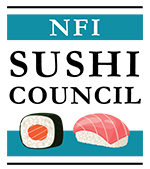Taking The Time To Get The Story Right (Part II)
Well, Time.com sure made some significant changes to that tuna article it botched yesterday. But heres the questionis begrudgingly editing an erroneous report in order to come more in line with the actual facts enough? In this caseno. The report was fatally flawed from the beginning and, as we requested, should not just be corrected piecemeal but should be removed from the site altogether and the process that allowed it to be published should be carefully reviewed. Time.com may be done talking to us but were not done talking to Time.com:
February 24, 2010
Daniel Eisenberg
News Executive Editor
Time.com
VIA Email
Dear Mr. Eisenberg,
Thank you for acknowledging receipt of our Letter to the Editor. The problems in the piece however are more than just a difference of opinion. Time.com has published an article that is both demonstrably misleading and commercially disparaging toward our product. Whats more, the article is at odds with specific perspective previously reported by Time, which demonstrates a reckless disregard for the truth.
Here are the specifics:
The piece cites a New York Times article saying that some tuna contained mercury levels so high that the FDA would be justified in removing the fish from the market. In fact, that story required a correction indicating that the reporter had overstated the risk by a factor of seven. The papers own public editor also penned a column rebuking the reporting and the supervising editor was quoted saying that it was overstated. Thats not just critics thats the paper itself conceding that their reporting was in error.
The piece falsely states that, The FDA has also warned against the likelihood of fresh tuna lovers falling prey to Scombroid, a mild food poisoning caused by the toxins emitted from improperly refrigerating the fish. In fact, Scombroid is not unique to tuna.
Eight of the ten food items that are included in the list alongside tuna can be fatal if not consumed properly. Yet there has never been a single case of mercury toxicity from the normal consumption of tuna found in any published peer-reviewed medical journal.
As you know, a representative from the National Fisheries Institute (NFI) contacted reporter Alyssa Fetini directly about our concerns. Despite an initial unwillingness to address obvious and demonstrable errors in her reporting Fetini:
- changed the title to Tuna Tremors from Tuna Terrors
- changed her reporting on the FDA/EPA advice to reflect that only a sensitive subpopulation was the target and not consumers broadly
- noted that the New York Times piece she originally cited had been accused by critics of being flawed
- edited the Scombriod section to note it is a mild food poisoning
This article is less than 150 words and has already undergone four significant corrections. But it is the entire premise of the piece that is flawed and should be removed.
Whats more, your reporter told our representative that despite not sourcing her work as coming from the Center for Science in the Public Interest (CSPI), her original list was based in part on a list complied by CSPI, not the American Association of Pediatrics, as was strongly implied in the original article.
Perhaps most disturbing, your reporter told our representative that Time.com top ten lists were designed to be tongue-in-cheek. Rather than tongue-in-cheek, we find this item journalistically unsound and commercially disparaging, in that it broadly and incorrectly seeks to characterize an inherently healthy product as not just potentially harmful but among the most dangerous and deadly foods you can eat.
Absent immediate and more appropriate corrective action by Time, we intend to vigorously contest this matter publicly and point out Time.coms willful misconduct in ads, through media critics, and possibly through legal action.
Thank you for your continued attention to this serious issue.
Gavin Gibbons
National Fisheries Institute
cc Maurice Edelson, General Counsel
Sora Song, Time.com Health & Medicine Editor
Richard Stengel, Time Magazine Managing Editor


